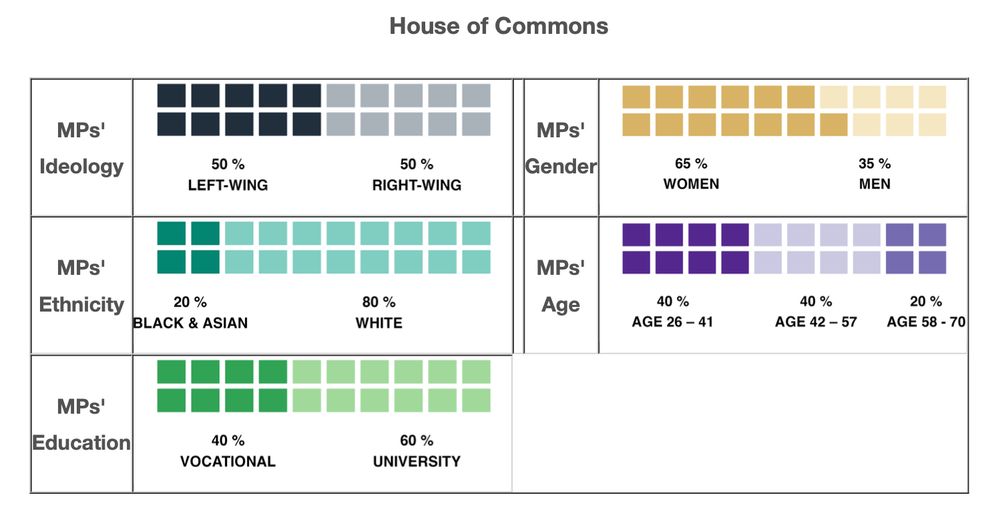
Verena Reidinger
@reidingerve.bsky.social
Postdoc @ipz.bsky.social; political representation; social identity; institutions; public opinion; political psychology;
www.verenareidinger.com
www.verenareidinger.com
Gender parity does not signal to men that institutions address their interests less. However, once men are under-represented, they perceive a reduction in output generated in their favor. Furthermore, men, on average, perceive gender parity as the fairest scenario. 5/9

August 14, 2025 at 3:27 PM
Gender parity does not signal to men that institutions address their interests less. However, once men are under-represented, they perceive a reduction in output generated in their favor. Furthermore, men, on average, perceive gender parity as the fairest scenario. 5/9
In a well-powered factorial survey experiment fielded in the UK, I manipulate gender representation alongside the representation of age groups, classes, ethnic groups, and ideological camps. I use a treatment for men’s under-representation modeled on real cases (e.g. Finnish government). 4/9

August 14, 2025 at 3:27 PM
In a well-powered factorial survey experiment fielded in the UK, I manipulate gender representation alongside the representation of age groups, classes, ethnic groups, and ideological camps. I use a treatment for men’s under-representation modeled on real cases (e.g. Finnish government). 4/9
Do men see gender parity in representation as detrimental to their interests? What about when women’s representation exceeds parity? And how do such shifts affect men’s fairness perceptions? I address these questions in my article, now published in PRQ. 1/9
doi.org/10.1177/1065...
doi.org/10.1177/1065...

August 14, 2025 at 3:27 PM
Do men see gender parity in representation as detrimental to their interests? What about when women’s representation exceeds parity? And how do such shifts affect men’s fairness perceptions? I address these questions in my article, now published in PRQ. 1/9
doi.org/10.1177/1065...
doi.org/10.1177/1065...

